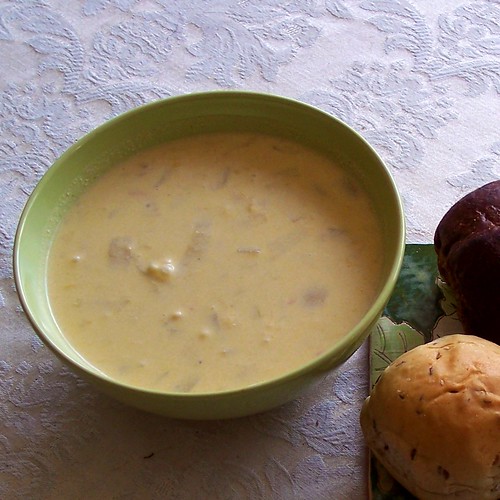One of the things about doctoral studies that no one warns you about, even if -- perhaps especially if -- you are a reader with a hungry mind, is that the British expression 'reading for a degree' is at once an accurate description of what you'll be doing, and a fair warning. You will be reading. You will be reading a lot.
It is therefore important not only that you choose your topic carefully, but also that you have a recreational Plan B, because the odds are very good that, like me, you will look at that pile of novels you wanted to read and find the idea of opening any of them as recreation, for mere amusement and pleasure, to be as appealing as going to sea in a sieve.
So you need a Plan B. Sports were frequently recommended, or working out, though I, clumsy and unathletic, settled on taking very long walks as my preferred physical activity. I took up also playing RPGs, which fed my need for stories, and reading cookbooks, which really are under-recognised as a genre of escapist fantasy.
A cookbook I did not have in those days was Fish, by Sophie Grigson and William Black, for the simple reason that it hadn't been published yet. It is a lovely book, full at once of all sorts of things you'd want to know about fish, and all sorts of recipes for cooking those fish. It tells you, for example, that cod (Gadus morhua in the Atlantic, Gadus macrocephalus in the Pacific) is called Bacalhau-do-Atlântico in Portugese and Kabeljau or Dorsch in German, that the best cod are line-caught in very cold waters, and that they're beguiling, gracious creatures with large eyes.
Better still, it covers all sorts of fish, and the sorts of foods people make with them in all sorts of places. Should life present you with an octopus or a parrotfish, this book will tell you how to cook them. Fin fish and shellfish, salted, smoked, familiar, exotic -- they're all represented. Most recipes also give a list of fish that would be suitable substitutes for the main ingredient, so that if you really want to try that recipe for Hawaiian Poke, but can't get fresh marlin, you can select a substitute with some confidence. I haven't begun to really plumb the depths of this book, but everything I've cooked from it so far has been wonderful.
Fish is now out of print, but I didn't have very much trouble finding second-hand copies on ABEbooks and Alibris, and if you like fish at all, I recommend you go get a copy right now.
Don't believe me? Here's a taste.
Henningsvaer Fiskesuppe
(adapted from Fish by Sophie Grigson and William Black)
serves 6-8
5.5 cups fish or vegetable stock
12 ounces cod filet (alternatives: coley, haddock, pollack, wrasse)
4 tablespoons butter
1 onion, finely chopped
1 large carrot, finely chopped
1 large leek (white and light green parts), finely chopped
2 teaspoons sugar
2 tablespoons white wine vinegar
1 1/3 cup crème fraîche or 1 cup sour cream thinned with 1/3 cup cream
salt and pepper
chopped fresh parsley, to garnish
Bring the stock to a boil. Add the cod, bring gently back to the boil, and then remove from heat. When tepid, lift out the cod and flake, discarding the skin and any stray bones. Reserve the flesh and the stock.
Melt the butter in a large pan and add the vegetables. Stir to coat nicely with fat, cover the pan, reduce the heat to a mere thread, and leave to sweat 20 minutes, stirring once or twice. Add the stock, sugar, vinegar, salt and pepper, and bring to a boil. Simmer for 10 minutes. Stir in the cream and the flaked fish. Taste and adjust the seasoning and then reheat gently, without boiling. Serve immediately, sprinkled with a little chopped parsley.
I forgot the parsley when I took the photo, but the soup was lovely even without it.

I would not recommend substituting yogurt for the crème fraîche or sour cream; I think it would be much too sour.
William Matthews

No comments:
Post a Comment